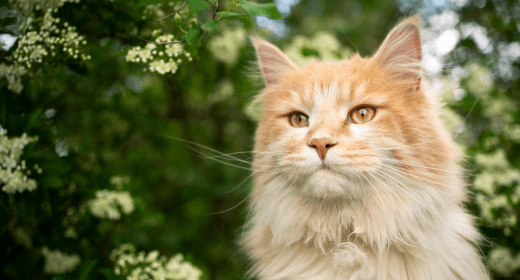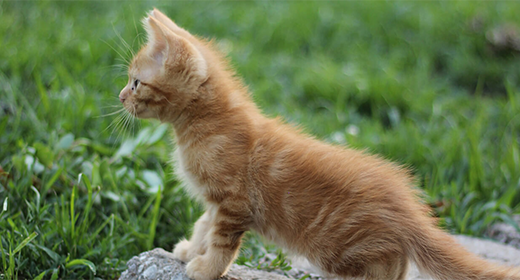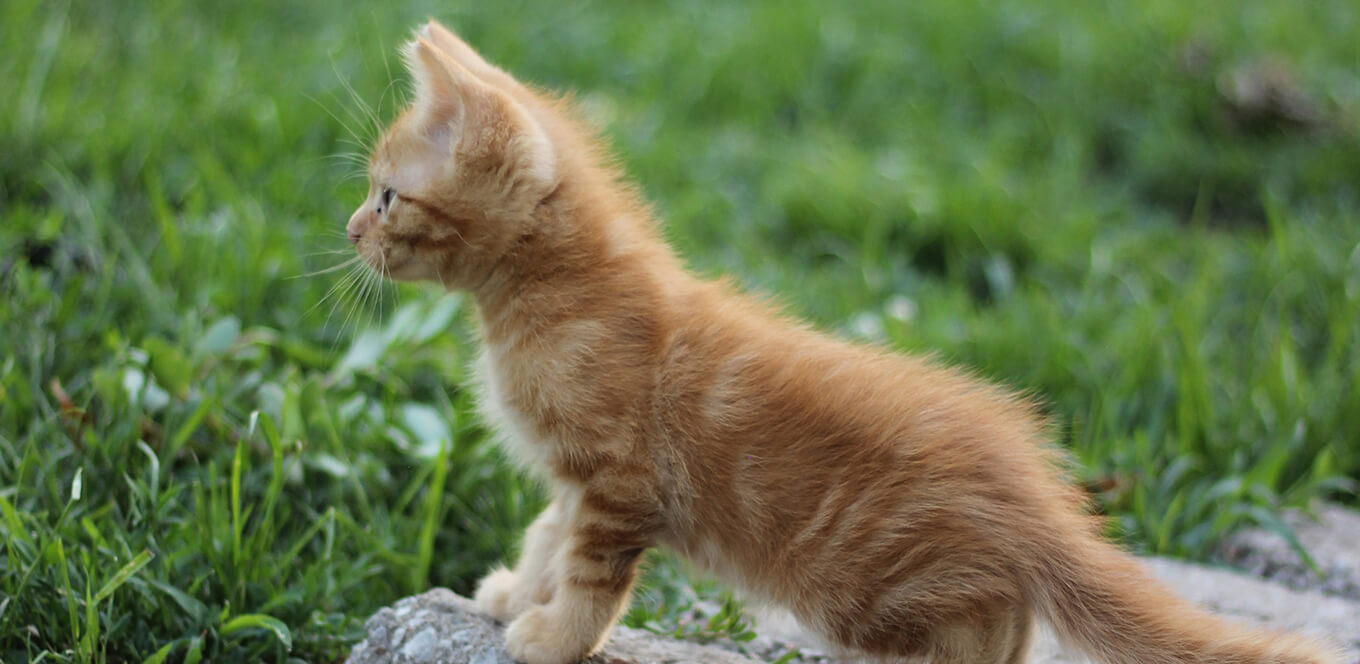

Our cat food products contain animal-based proteins that provide all the essential amino acid requirements for cats. In addition, special refining and quality assurance tests ensure that we only use high-quality, highly digestible protein sources for increased digestibility.
Cats, best fed as true carnivores, require essential nutrients that aren't found in plant proteins such as soybean meal. For example, cats require taurine, which can only be found in animal-based proteins.
There are two important types of fatty acids for cats, omega-6 and omega-3 fatty acids. Omega-6 fatty acids, found in chicken fat and corn, are essential for maintenance of skin and coat and proper membrane structure. Omega-3 fatty acids are found in ingredients such as canola, fish meal or fish oil, and flax. Omega-3 fatty acids have been shown to be important in blood clotting and in managing inflammation, among other things. All of our products contain sources of omega-6 and omega-3 fatty acids.
IAMS™ research has shown that including omega-6 and omega-3 fatty acids in a ratio between 5:1 to 10:1 provides for optimal skin and coat condition in dogs. All of our products contain an adjusted omega-6:omega-3 fatty acid ratio between 5:1 to 10:1.
IAMS research has shown that moderately fermentable fiber, such as beet pulp, enhances intestinal health. The fermentable part of the fiber is broken down by intestinal bacteria to provide short-chain fatty acids, an energy source for intestinal cells. The non-fermentable component provides bulk for normal feces.
Using only highly fermentable fibers can cause problems, such as excess gas, while using only non-fermentable fibers, such as peanut hulls, promotes excess stool volume, because they are of no nutritional value.
All of our products, including IAMS ProActive Health™ Adult Original with Chicken, contain a patented fiber system of moderately fermentable fiber to help keep dogs’ and cats’ digestive systems healthy.


With all of the different kitten food options and ingredients available, it’s important to learn what your kitten needs and what is less essential. You may have heard of flaxseed meal, an ingredient included in some wet cat foods. Is flaxseed meal, a source of omega-3 fatty acids, a necessity for your kitten?
Learn more about this ingredient and how it can affect your kitten’s health for the better.
Flaxseed meal is the ground seed of the flax plant. The oil in flax is a good source of omega-3 fatty acids like alpha-linoleic acid, which is the parent compound of other omega-3 fatty acids.
In kitten and cat food, flaxseed meal is used to provide omega-3 fatty acids to give a balance of omega-6 to omega-3 fatty acids in the diet. IAMS research shows that balancing the amount of omega-6 and omega-3 fatty acids helps maintain a healthy skin and coat.
Including omega-3 fatty acids like alpha-linoleic acid in a kitten’s diet can help:
Alpha-linolenic acid may be an essential omega-3 fatty acid; however, it may take several generations for the signs of deficiency to become evident in a cat. When choosing a wet food, consider one that contains flaxseed meal to help maintain your kitten’s health during this time of rapid growth and development. IAMS™ Perfect Portions™ Healthy Kitten Pate with Chicken is formulated with omega-3 sources, including flaxseed meal, to provide guaranteed levels of omega-3 fatty acids.
